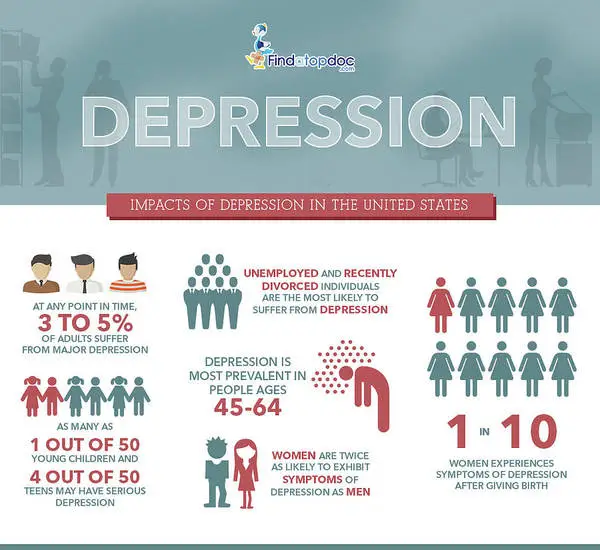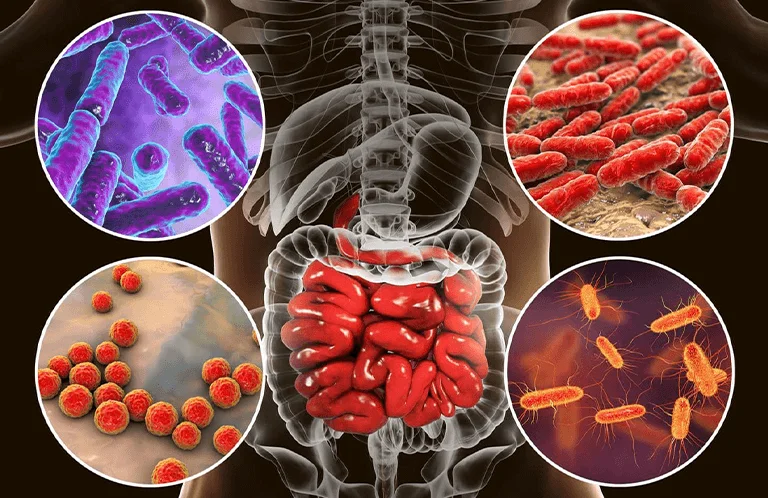Depression Symptoms and Treatment: Depression is a prevalent mental health condition that affects millions of people worldwide. It can significantly impact one’s daily life, relationships, and overall well-being. Recognizing the symptoms of depression and seeking appropriate treatment are crucial steps toward recovery and improved mental health. This article aims to shed light on the common symptoms of depression and explore effective treatment options available.
I. Symptoms of Depression:

Depression manifests itself through various physical, emotional, and cognitive symptoms. While individuals may experience depression differently, the following symptoms are commonly associated with the condition:
- Persistent Sadness and Hopelessness: Feeling consistently sad, down, or empty, even in the absence of apparent reasons, is a hallmark symptom of depression. Individuals may lose interest in activities they once enjoyed and have a pessimistic outlook on life.
- Loss of Energy and Fatigue: Depression often leads to a persistent lack of energy, resulting in increased tiredness and fatigue. Simple tasks that were previously manageable may feel overwhelming and exhausting.
- Sleep Disturbances: Depression can disrupt sleep patterns, leading to insomnia or excessive sleepiness. Individuals may struggle to fall asleep, experience frequent awakenings during the night, or find it difficult to wake up in the morning.
- Changes in Appetite: Depression can cause a significant change in appetite, leading to weight loss or weight gain. Some individuals may lose their interest in food and experience a decreased appetite, while others may turn to food as a source of comfort, leading to overeating.
- Difficulty Concentrating and Making Decisions: Depression often impairs cognitive functions, making it challenging to concentrate, make decisions, or remember details. Individuals may experience a “brain fog” that affects their productivity and overall cognitive abilities.
II. Effective Treatment Approaches:

Treating depression involves a comprehensive approach that addresses both the biological and psychological aspects of the condition. The following treatment options have proven to be effective:
- Psychotherapy: Psychotherapy, such as cognitive-behavioral therapy (CBT), is a common and effective treatment for depression. It involves working with a therapist to identify negative thought patterns, develop coping strategies, and learn healthier behaviors.
- Medication: Antidepressant medications, such as selective serotonin reuptake inhibitors (SSRIs), can help alleviate depression symptoms by regulating brain chemicals. It is important to consult a psychiatrist or a healthcare professional for proper diagnosis and prescription.
- Lifestyle Changes: Making positive lifestyle changes can significantly impact one’s mental well-being. Engaging in regular exercise, maintaining a balanced diet, getting enough sleep, and avoiding alcohol or substance abuse can all contribute to managing and reducing symptoms of depression.
- Social Support: Building a strong support network is essential for individuals with depression. Connecting with understanding family members, friends, or joining support groups can provide emotional support, reduce feelings of isolation, and enhance recovery.
- Mindfulness and Relaxation Techniques: Practices like meditation, deep breathing exercises, and mindfulness have shown positive effects in managing depression symptoms. They promote relaxation, reduce stress, and improve overall emotional well-being.
Recognizing the symptoms of depression and seeking appropriate treatment is crucial for individuals struggling with this mental health condition. By understanding the common symptoms and exploring effective treatment options like psychotherapy, medication, lifestyle changes, social support, and mindfulness techniques, individuals can find hope, support, and ultimately improve their mental health. It is important to remember that depression is treatable, and with the right guidance and support, individuals can embark on a journey towards recovery and a more fulfilling life.
Read Also: Mindfulness Meditation
![]()






2 thoughts on “Depression Symptoms and Treatment”